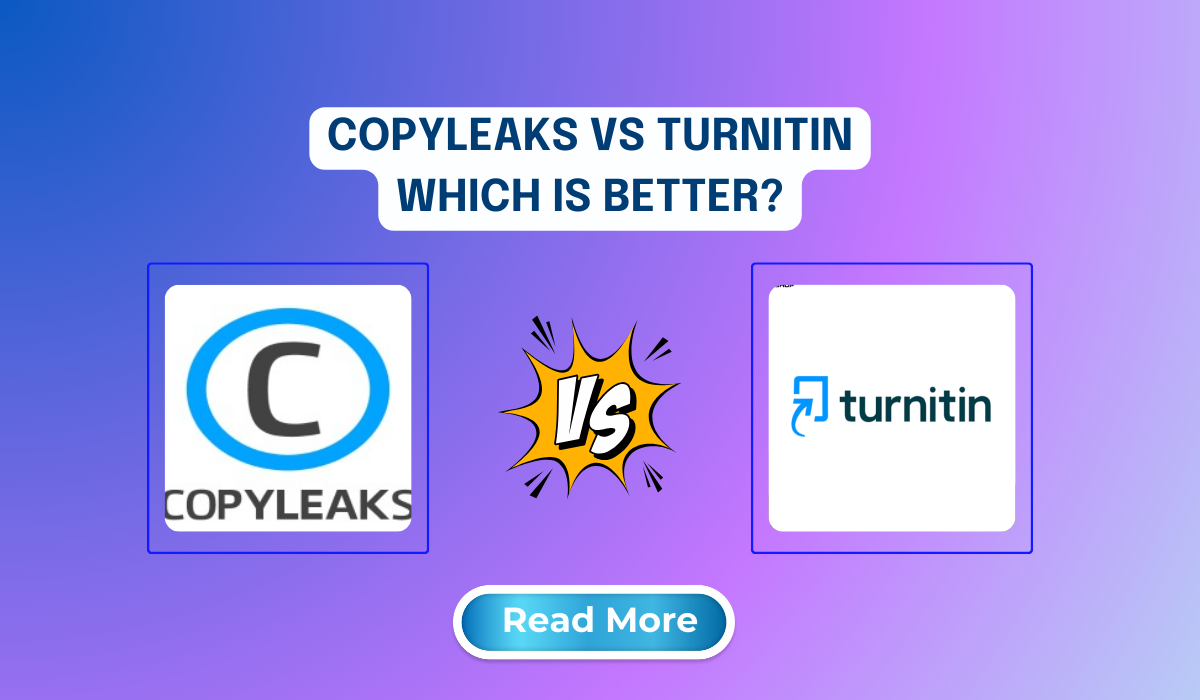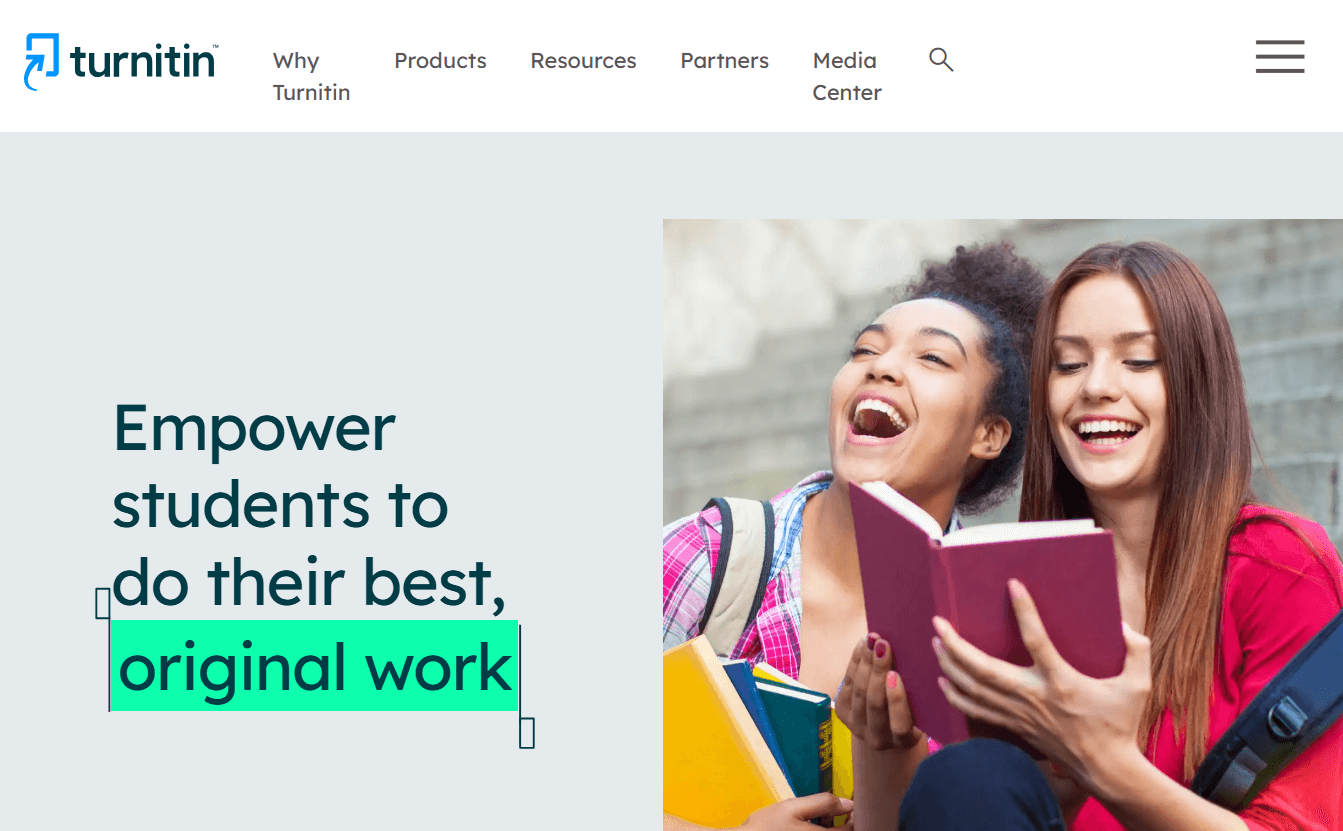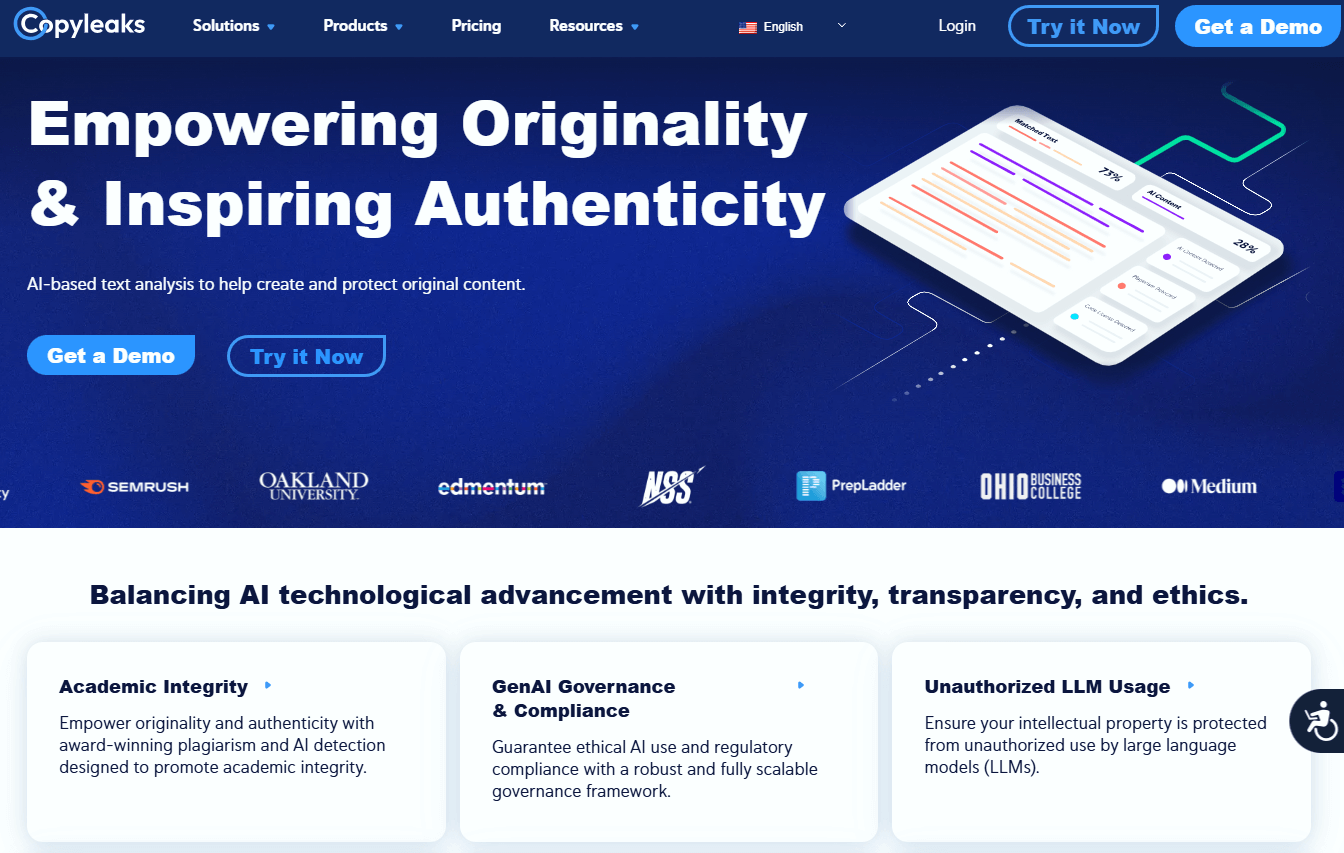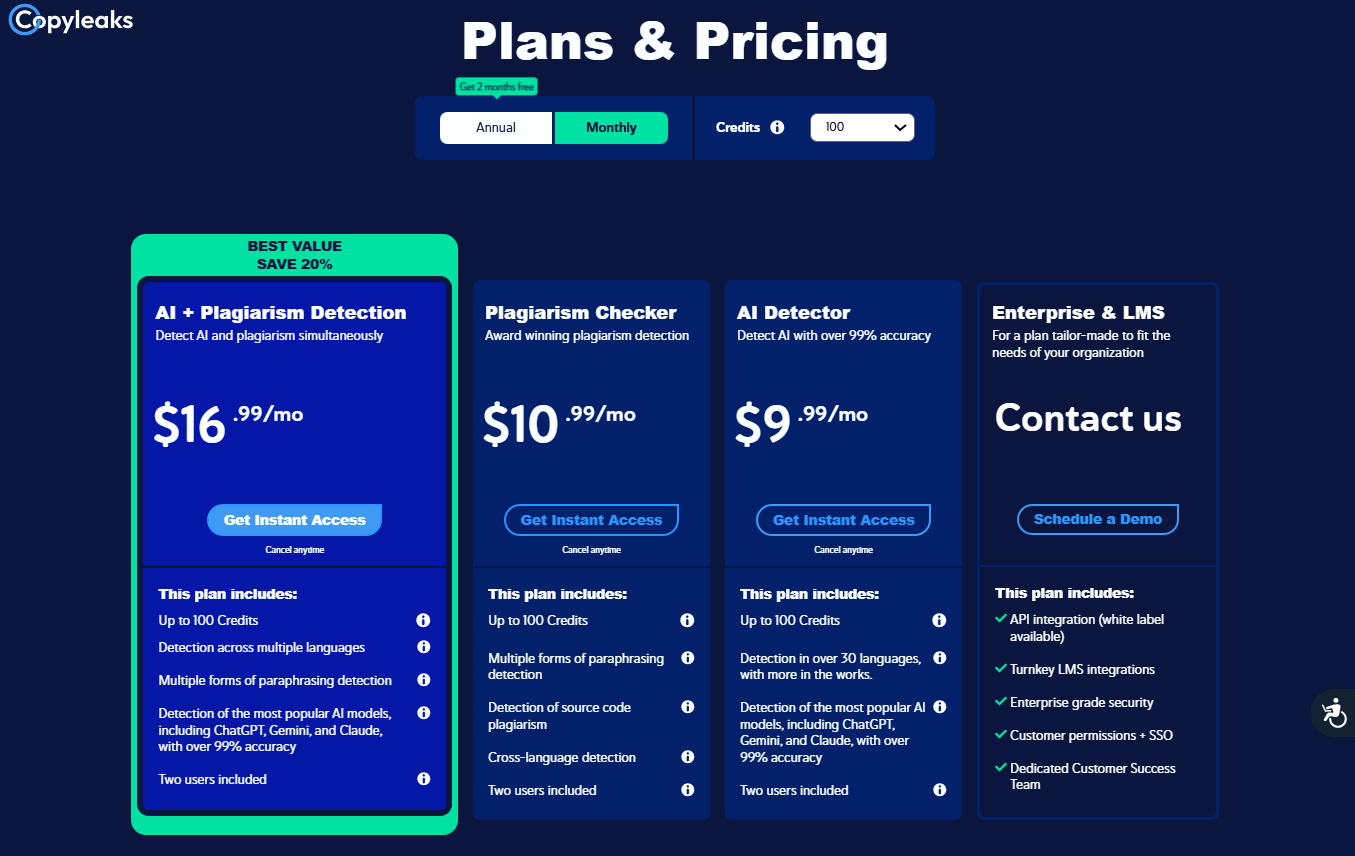
The battle of flagging plagiarism and AI-generated text is still going strong. Many users are on their way to find their powerful detectives. As you’re on your search, two big names might pop up the most often: Copyleaks vs Turnitin.
Both are powerful tools, but how do they compare? Let’s take a closer look at their features and pricing to determine which one is best for your needs.

Turnitin For Educational Purposes
If you’re a student or teacher, you might’ve heard of Turnitin at least once in your education. Well, this tool is popular for owning a huge database filled with books, journals, academic papers, and various internet sources. This makes it a reliable detector against copycats.

Copyleaks With a Diverse Audience
On the other hand, Copyleaks is a versatile tool that works well for both academic and business needs. This tool shines on AI detection, and it’s considered one of the most “picky” detectors since it won’t let any robotic expressions pass by. Copyleaks also offers plagiarism detection for anyone who needs it.
| Copyleaks | Turnitin | |
| Best fit for | Businesses, educators, professionals, content writers, etc | Schools, colleges, and universities |
| AI Detection | Advanced algorithms to identify AI-generated content | Limited AI detection, primarily plagiarism-focused |
| Browser Extension | Available for Chrome and Microsoft Edge | Not available |
| Language Varieties | Scanning over 100 languages | Supporting 176 languages |
Related Articles:
Winston AI vs Turnitin: Which is the Best AI Detection in 2025?
GPTzero vs Turnitin: Is Zero GPT as Accurate as Turnitin?
Turnitin vs Grammarly: Choosing Your Ideal Plagiarism Checker in 2025
These tools are perfect choices in the market, making it difficult for newcomers to decide. We’ve explored them and made a list of their worthy features and what needs to be improved.
Below are what we like about Copyleaks:
The features are perfect, but Copyleaks still has some drawbacks:
How about Turnitin? So here’s what we think its advantages:
What we don’t like about Turnitin
You may be interested in:
Does Copyleaks Detect Grammarly As AI? The Truth Revealed!
How to Avoid Copyleaks AI Detection? 5 Tips to Bypass in 2025
Both are soldiers against plagiarized content, but they shine in different ways.
While Turnitin is a favorite in academic institutions thanks to its vast database, Copyleaks exploits advanced AI technology to detect a wider variety of content, like business documents, creative writing, and more.
So, if you’re not explicitly related to education, Copyleaks is a flexible solution.
Maybe You Are Interested:
How to Reduce Similarity Score On Turnitin? 7 Tips To Reduce
Top 9 Best Undetectable AI Writers [Test & Results]

Copyleaks Pricing Plan
What’s so interesting? Copyleaks lets you scan up to 20 pages/month right on its platform at no cost. There’s a limitation of 25,000 characters for each check. Still, this offer is a huge advantage to users who have a limited budget or just want to test it out.
Copyleaks offers the most flexible pricing options that we’ve ever seen. It provides different subscriptions for each user’s demand. Plus, the more credits you choose, the more you’ll pay. For instance, if you pick a 100-credit plan, your monthly billing is:
However, as you go with higher plans, there’ll be a discount.
Note: 1 credit for 250 words
The sad news? It’s hard to access Turnitin (even when you’re willing to pay) since this platform only offers its service through institutional licenses (covering schools, universities, etc). In other words, they do not provide individual licenses for solo use.
And since it’s targeted at educational institutions, its pricing can be quite high.
In short, it depends on what you need and your budget to decide the winner in this Copyleaks vs Turnitin battle. If you’re in education and want a reliable tool with a massive database to check your essays or research papers, Turnitin is a great choice. However, if you’re looking for something more flexible, Copyleaks might be worth checking out.
That said, both are the most reliable plagiarism detectors in the market. If you need to explore further about this topic, stay with TechDictionary. We’ll get you covered.
No. Copyleaks and Turnitin are separate and don’t share any data.
Absolutely! Many teachers use Copyleaks to detect plagiarism and identify AI-generated content in students’ work.
Both are accurate, but they excel in different areas. Turnitin is great for academic checks, while Copyleaks is for various documents and is really strong in AI detection.

